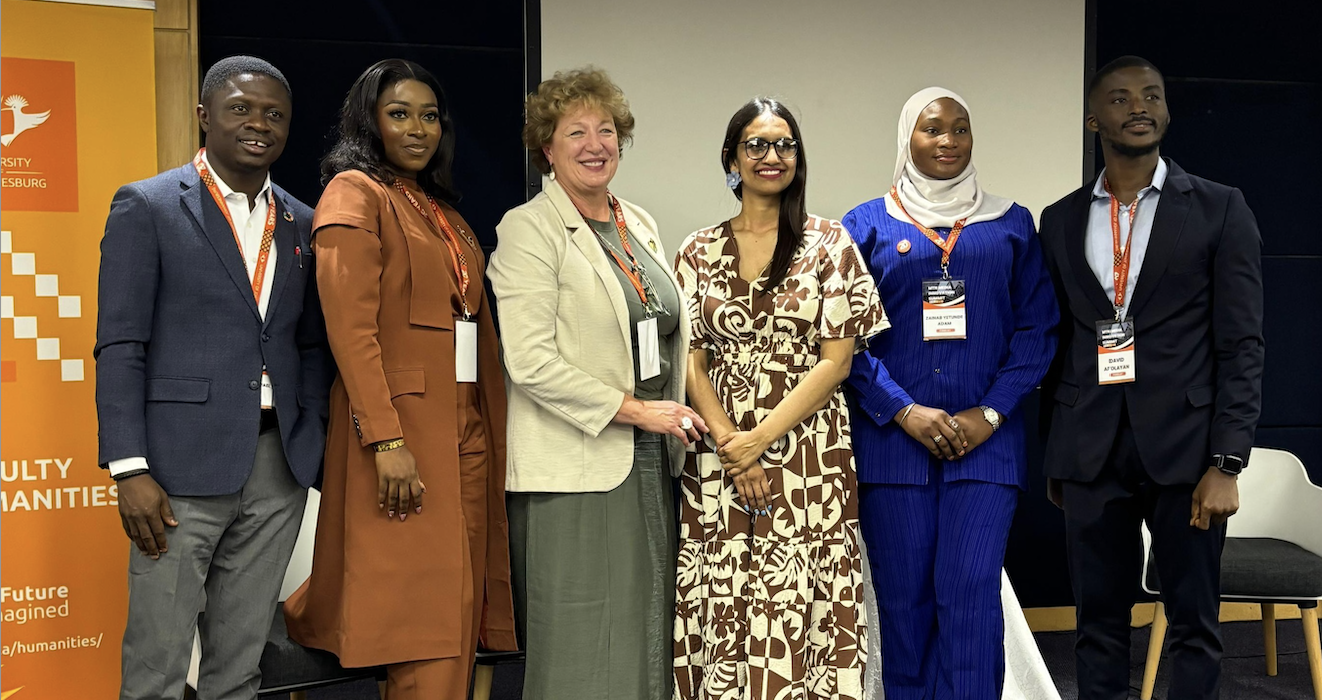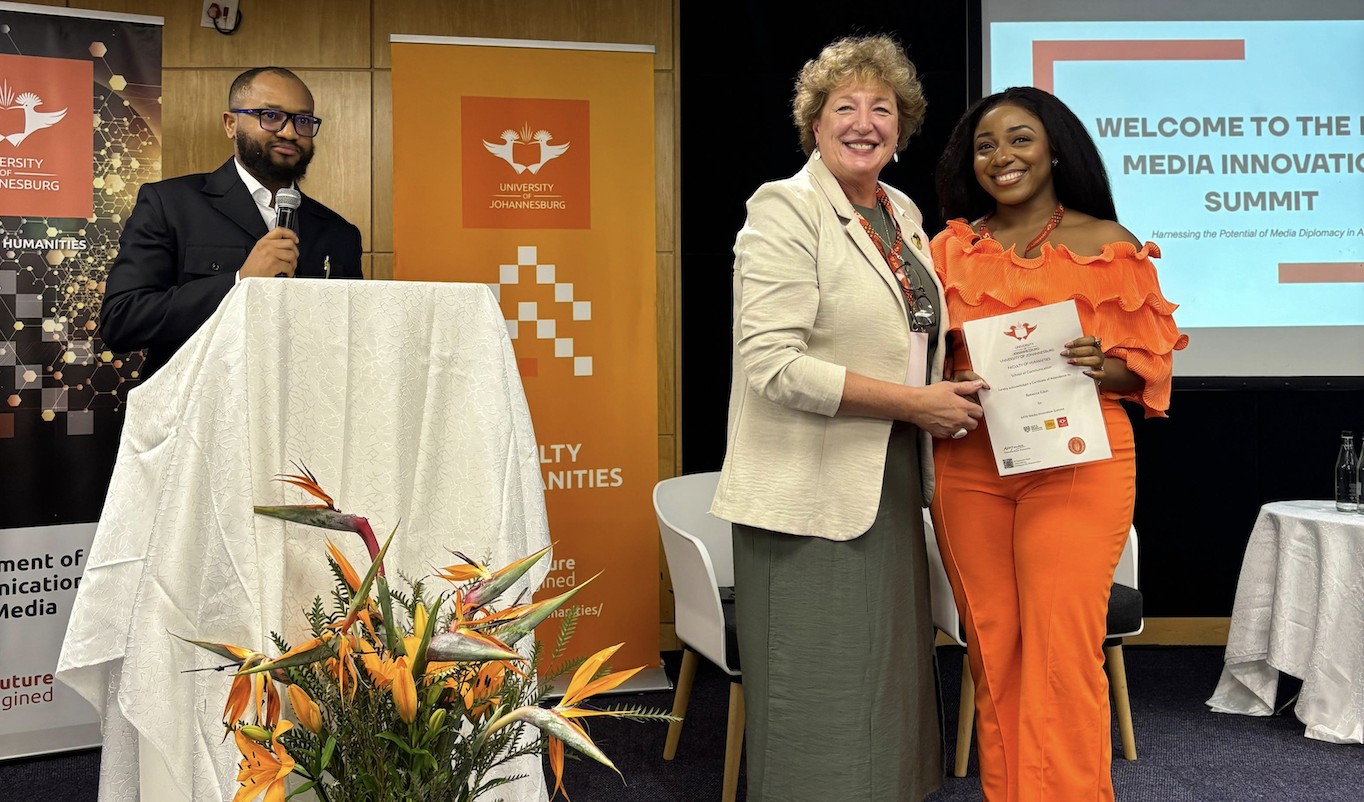“Harnessing the Potential of Media Diplomacy in Africa” was the theme of this year’s MTN Media Innovation Summit, held at the University of Johannesburg (UJ) from 8–9 September 2025. The summit, part of the Media Innovation Programme (MIP4) study visit hosted annually by Pan-Atlantic University (PAU) in Nigeria, brings together African media leaders to explore innovative approaches to journalism, collaboration, and strategic communication.

Media diplomacy—the strategic use of media to shape narratives, influence public opinion, and advance diplomatic objectives—has become a powerful tool in a rapidly shifting global order.
In Africa, it holds particular promise for advancing the African Union’s Agenda 2063 and supporting the African Continental Free Trade Area (AfCFTA), which seeks to eliminate trade barriers, boost intra-African trade, and promote economic integration across 55 nations. The UJ study visit aimed to deepen engagement among media professionals, academics, and policymakers, placing media diplomacy at the heart of these exchanges.
The two-day summit reflected on how traditional and digital media platforms can enhance Africa’s diplomatic efforts, counter misinformation, and reframe African agency in global affairs.
Welcoming guests, Faculty of Humanities Executive Dean Professor Kammila Naidoo emphasised collaboration and innovation:
“The Department of Communication and Media has crafted new curricula in line with the changing demands of media studies and activated the Centre for Data and Digital Communications. These changes help prepare students for the future and enhance much-needed development and sustainability.”
Head of the School of Communication, Professor Rene Benecke, urged attendees to challenge conventional narratives:
“This is an opportunity to reframe Africa’s story. We must reject the single story of war, poverty, and corruption that deprives us of hope. This summit must foster creative problem-solving, adaptive thinking, and multidisciplinary collaboration to build new bridges for the future.”
Mr Funso Aina, Senior Manager of MTN Nigeria External Relations, highlighted the company’s commitment to supporting media capacity-building initiatives such as MIP4.
Media as a strategic tool
During the first panel discussion, “Media as the Handmaiden of Diplomacy,” panelists explored how media can go beyond information dissemination to serve diplomacy, development, and democratic resilience. Dr Chike Mgbeadichie, MTN-MIP Director, challenged attendees to rethink media’s role in Africa, while Mr Reggie Moalusi emphasised the need for editorial collaboration and safe forums to address misinformation, AI in newsrooms, and journalist safety.

Dr Emmanuel Matambo, from the Centre for Africa-China Studies, highlighted economic challenges for African media, including declining trust in state media, and stressed the need to equip public broadcasters with tools for credibility and relevance. Other panelists examined trends, opportunities, and challenges in Africa’s media diplomacy, including South Africa–Nigeria relations. Guest panelists included Sophie Mokoena (SABC International News Editor), Dr Kate Skinner (Executive Director, Association of Independent Publishers), Prof Prinola Govenden, Prof Mandla Radebe, and Mr Thembelani Mpakati (Media Development and Diversity Agency).
Sophie Mokoena stressed that truthful reporting is not only journalistic integrity but also a diplomatic act, highlighting the necessity of trust between media and government to ensure effective public diplomacy.
Telling Africa’s story
On Day 2, Professor Admire Mare, Head of Communication and Media, delivered a public lecture emphasising the media’s crucial role in telling truthful African stories:
“We find ourselves in a very complex world where country wars are fought over natural resources. The media must understand whose voices are silenced and whose are amplified,” he said.
Prof Mare questioned why Africa exports raw materials rather than finished products, describing the current moment as one where “the old is dying and the new cannot be born. Democracy has failed to deliver the promised dividends.” He called on African media to mediate foreign policies, give voice to the powerless, and reclaim storytelling from foreign media dominance:
“Africa is the agenda, we are our own ambassadors, and we have a role to project and defend the African agenda.”
The summit concluded with a shared commitment among media leaders, academics, and policymakers to strengthen Africa’s media diplomacy, ensuring that the continent’s stories are told by Africans, for Africans, and with global impact.



